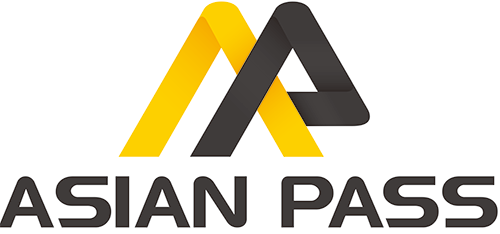Usually an invoice is made and delivered to the buyer when the seller delivers the goods to the buyer whether it is a paper invoice or an electronic invoice. However, according to Decree 123/2020/ND-CP, a number of new regulations have been issued on the making and signing of e-invoices. Through today’s article, let’s learn more about this issue with Pham Consult!

1. Is it correct to create and sign electronic invoices within 24 hours according to the new proposal of the Ministry of Finance?
Currently, Clause 9, Article 10 of Decree 123/2020/ND-CP stipulates the time of digital signature on invoices as follows:
Contents of the invoice
- Invoice name, invoice symbol, invoice model symbol. As follows:
- a) Invoice name is the name of each type of invoice specified in Article 8 of this Decree and shown on each invoice, such as: VALUE INVOICE, VALUE INVOICE, TAX REFUND, INVOICE VALUE-INCLUDED BILLS AND COLLECTION COLLECTIONS, SALE BILLS, PUBLIC PROPERTY SALE BILLS, TEMPLATES, TICKET, CARDS, NATIONAL RESERVED SALE BILLS.
…
- Time of digital signing on e-invoices is the time when sellers and buyers use digital signatures to sign on e-invoices displayed in the format of day, month and year of the calendar year. In case the e-invoice has been issued with a different time of digital signature on the invoice, the time of tax declaration is the time of making the invoice.
In fact, the above regulations do not specify the time period between the time of making the invoice and the time of digital signing, so there are cases where the seller issues an invoice but only 1 week, 1 month later, he will sign the invoice number to send to the customer. buyers and tax authorities.
Therefore, to solve the above shortcoming, the Ministry of Finance proposes to amend Clause 9 Article 10 of Decree 123/2020/ND-CP in the direction of:
- The time of digital signing on an e-invoice is the time when the seller and buyer use the digital signature to sign on the e-invoice displayed in the format of hour, day, month and year of the calendar year. In case an e-invoice has been issued with a different time of digital signature on the invoice than the time of invoice issuance, the time of invoice issuance and digital signature time shall not exceed 24 hours and the time to declare tax for the seller. is the time of making the invoice, the time of tax declaration for the buyer is the time when the invoice is correct, complete in form and content as prescribed in Article 10 of this Decree.
Thus, when this proposal is approved, the time of invoice and digital signature is not more than 24 hours apart and the time to declare tax for the seller is the time of invoice, the time of tax declaration for the seller. For the buyer, the invoice is guaranteed to be correct and complete in form and content.
2. Add regulations on content of VAT invoices cum tax refund declarations for enterprises selling tax refund goods to foreigners?
In Article 10 of the current Decree 123/2020/ND-CP, there are no regulations on the content of VAT invoices and tax refund declarations for business establishments that sell tax refund goods to foreigners.
According to the Draft Decree amending and supplementing Decree 123/2020/ND-CP, the Ministry of Finance proposes to supplement regulations:
The value-added invoice cum tax refund declaration includes 3 parts:
– Part A: Prepared by the business selling VAT refunded goods. The content of information in this section complies with the provisions of Article 10 of Decree 123/2020/ND-CP and amendments and supplements in the Decree amending Decree 123/2020/ND-CP.
– Part B: Prepared by the customs office. Contents of information include: name of the item to be refunded, quantity, VAT number of foreigner to be refunded, digital signature of the customs officer checking.
– Part C: Prepared by a commercial bank that is a tax refund agent. The information in this section includes: flight or train information of the exiting foreigner, the amount of VAT refunded to the exiting foreigner, the form of refund, the digital signature of the refunding bank.
3. How does the Ministry of Finance recommend that sellers prepare invoices for returned goods?
Currently, Article 19 of Decree 123/2020/ND-CP does not have specific regulations on how to handle duplicate invoices, resulting in the return of goods or cancellation of service provision. However, in reality, there are cases where buyers and sellers have declared taxes only to discover that the electronic invoices that have been created have errors; In case the seller arbitrarily cancels or replaces the invoice, it will affect the buyer.
Therefore, as proposed in the draft Decree amending Decree 123/2020/ND-CP, it will be clearly stipulated that the seller issues an invoice in case the buyer returns the goods; The seller terminates/cancels the provision of services.
Specifically:
– In case the buyer returns all goods: The seller cancels the electronic invoice that has been created.
– In case the buyer returns part of the goods: The seller issues an adjusted electronic invoice.
– In case the goods are assets that must be registered for use and ownership rights and the assets have been registered in the buyer’s name: If the buyer is a user of electronic invoices, the buyer shall issue a payment invoice. return goods.
Thus, through the article on Pham Consult, we have clarified with you the issue of creating and signing electronic invoices according to the new regulations of the Ministry of Finance. Hope this information will help your work.




 VI
VI